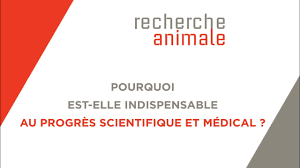Research at CRNL
The CRNL conducts fundamental and clinical research to improve our understanding of Brain and Behavior and to develop treatments for neurological and neurodevelopmental diseases. Even if the in vitro (cellular) or in silico (computer modeling) methods play an important role, they do not allow us to understand the full complexity of brain functions. In this context, the projects developed by CRNL involve in-vitro, in-silico but also in vivo research in humans and animals.
Regulations and ethics in animal research
For scientists, animal research is not an objective in itself but a step in a process. In the society at large as among researchers, the use of animals for research raises moral questions, as well as a desire to minimize the stress exerted on these sensitive beings.
These reflections resulted in the establishment of a very strict and harmonized regulatory framework at European level. This regulation provides for a set of provisions and devices to guarantee the welfare of the animals used.
Within the framework of this regulation, the institution is approved and regularly inspected by the ‘DDPP du Rhône’ (Veterinary Services), each research project complies with the 3Rs rule (Replace, reduce, refine) and is evaluated by the ethics committee n° 42 Celyne, and the CRNL has set up an animal welfare body structure for each of its four animal facilities.
Useful links :
Animal models: an ethical research (CNRS)
Protection of animals used for scientific purposes (Inserm)
Recherche animale (GIRCOR)













